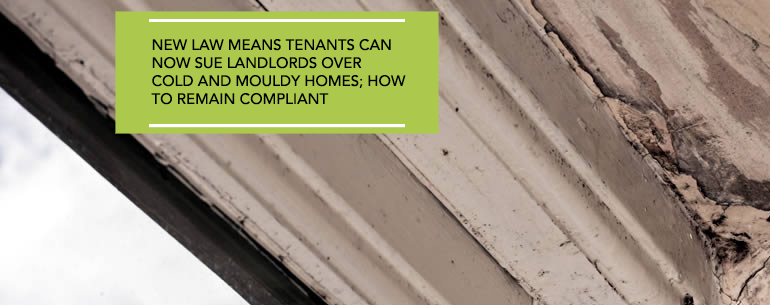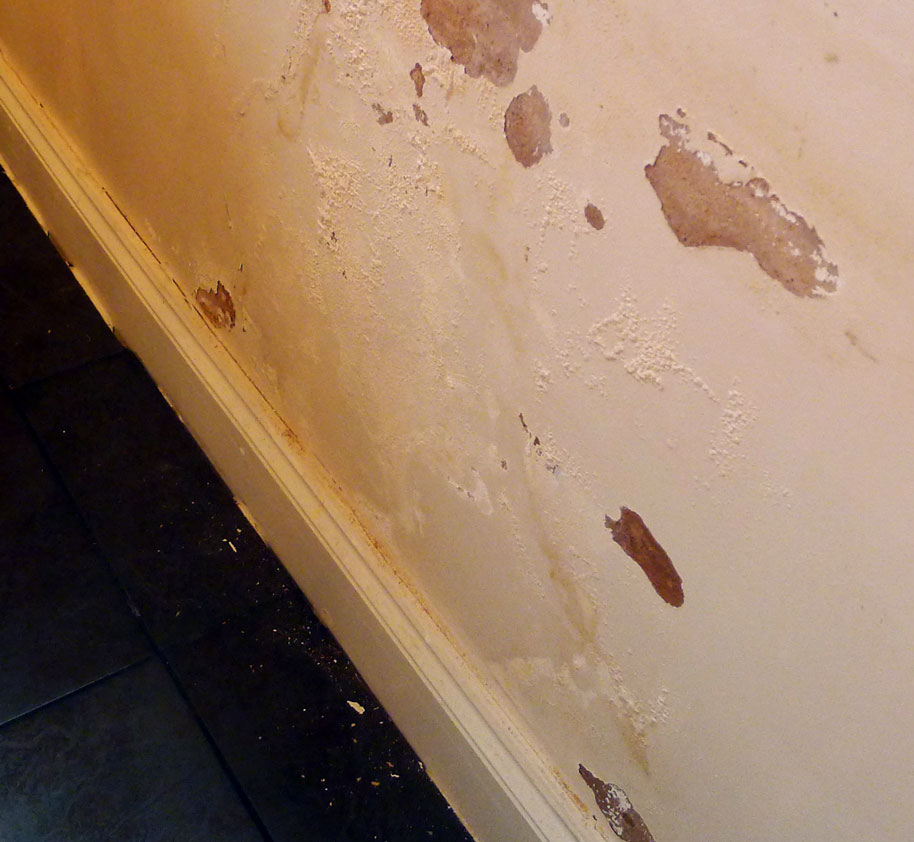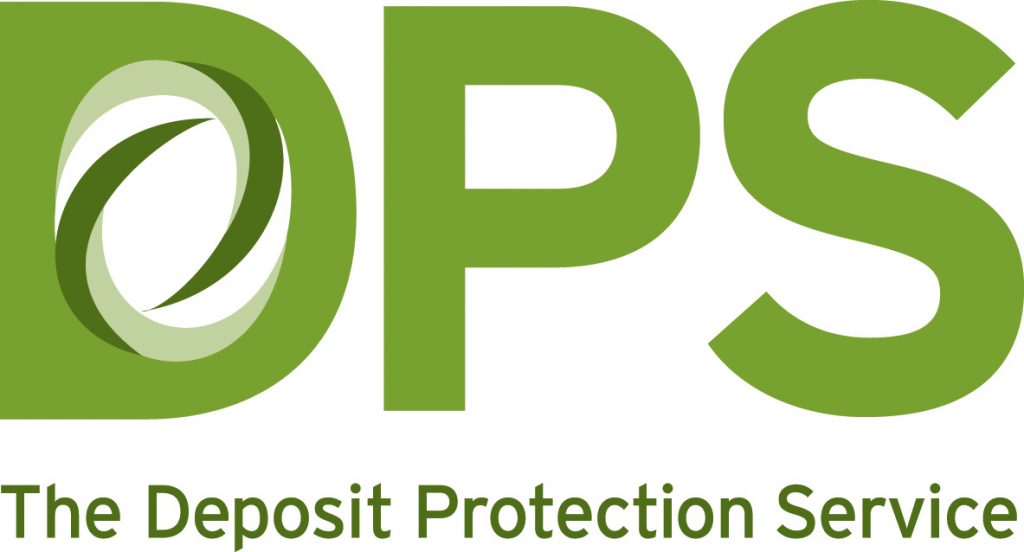
As we mentioned a few weeks ago on our blog, a new law has been instated that means landlords can be sued by their tenants for cold, damp or mouldy homes. As we take great pride in managing quality homes for our landlords, we’re taking the opportunity this week on our blog to remind landlords how to avoid these conditions developing in their properties.
The Homes (Fitness for Human Habitation) Act gives tenants the ability to sue landlords to force improvements to their accommodation.
David Cox, ARLA Propertymark chief executive, said: “This new legislation will give renters greater protection against criminal operators, and means they will now be able to take direct legal action if their agent or landlord does not comply.”
Under the new rules, a landlord is in breach of the new law if there are serious defects in any of the following areas:
- Repair
- Stability
- Freedom from damp
- Internal arrangement
- Natural lighting
- Ventilation
- Water supply
- Drainage and sanitary conveniences; and
- Facilities for preparation and cooking of food and for the disposal of waste water.
Therefore in order to ensure as a landlord your rental property is compliant and safe against any issues in these areas, here are a few steps to follow.
Regular inspections
Not only can making your presence felt known from time to time be reassuring to tenants and help to strengthen your relationship with them, it is critical in knowing what shape your property is in. By organising regular inspections (or having them done for you), any minor maintenance issues can easily be spotted and rectified before they fracture into larger and more expensive problems.
Tackling mould and damp
Damp can be a huge concern for both tenants and landlords. Be it as a nuisance that interferes with the visual aesthetics of your property through to making rooms feel cold, unwelcoming and unhealthy. Prevention is far better than a cure for damp and mould, so staying on top of this regardless of whether it is in your current rental property or you have invested in a new one.
Checking the roof regularly for any sign of damage is a positive first step, especially after a storm. Keep the gutters clear and fix or clear when necessary. Following this, the next step is to ensure your rental property is kept warm, especially during any void periods over colder times.
Condensation occurs when warm, moist air touches a cold surface like a chilly window pane or a cold external wall. Loft and wall insulation can help create warmer spaces, and properly fitted double-glazing will help to avoid misty windows as the inner panel of glass is insulated against the cold air outdoors.

Try to maintain a constant temperature within your home by setting your thermostat to a lower temperature, but over a longer period of time each day. This will help to avoid sudden rises and dips in temperature, when condensation could develop. If your central heating system was installed some time ago, consider upgrading elements to make your home more efficient and easier to control. Programmable room thermostats and thermostatic radiator valves (TRVs) make it easier to heat your home where it needs it most, and Smart Home devices enable you to monitor temperature and energy usage as well as control your heating when away from home.
Help to make the most of the heating when it is on by ensuring that radiators aren’t blocked by furniture and that towel warmers aren’t overloaded with damp towels.
Ensuring thorough ventilation
Not only is ventilation key to ensuring your property feels fresh, it is also one of the critical components to preventing damp and mould. Ensuring windows and doors are correctly maintained to allow sufficient air flow when open and restricting when closed (such as times when your tenants are cooking) is ideal.
If your property has high ceilings, ensuring ceiling fans installed will help air circulate from the top of the room down to ground level.
An extractor fan should also be installed in the bathroom. Tenants should be encouraged to run it whenever they are in the room to reduce condensation and get rid of bad odours. After particularly steamy showers, letting the fan run for another half an hour after leaving the room is ideal. Like kitchen fans, extractor fans in the bathroom can become dirty and clogged. Clean the filter twice a year to keep your bathroom well ventilated and smelling fresh.
At Abode we pride ourselves on ensuring all our landlords are compliant with their properties, with an outstanding maintenance department and frequent inspections to advise and ensure properties are in the fittest states for tenants and in the most profitable way for you as a landlord; keeping you safe from any form claim from a tenant whilst helping to sustain a happy, healthy and long tenancy.
If you have any queries about the new implemented act and making sure you are compliant, feel free to give us a call on 0161 883 2525.







